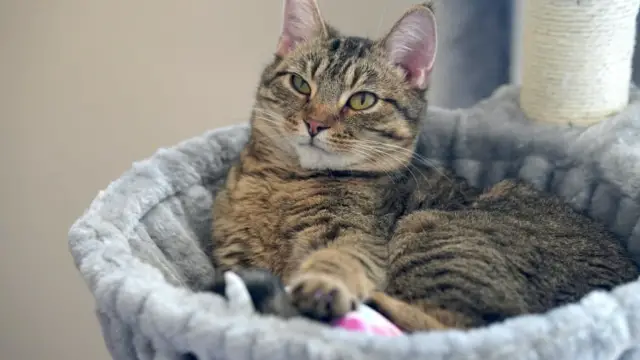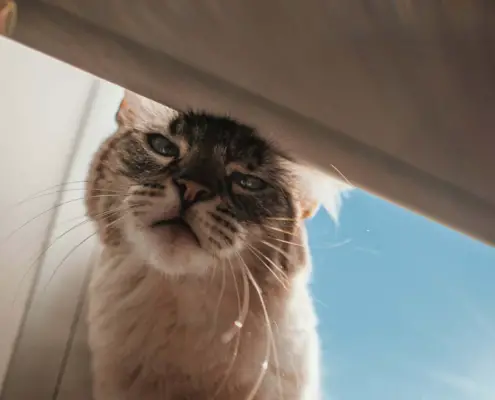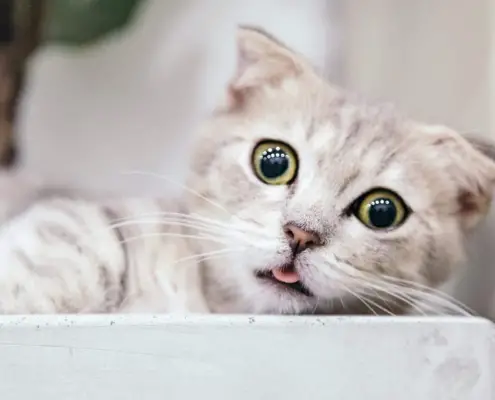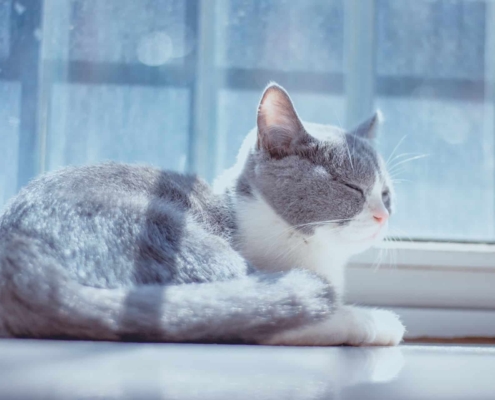
Feline Immunodeficiency Virus (FIV) is a viral infection that affects cats worldwide. It is similar to the human immunodeficiency virus (HIV) and attacks the immune system, making cats more susceptible to other infections and diseases. FIV is primarily transmitted through deep bite wounds, often occurring during fights between infected and uninfected cats.
Causes and Transmission of FIV in Cats
FIV is caused by a retrovirus, specifically the lentivirus family. It can be transmitted from an infected mother cat to her kittens during birth or through nursing. However, the most common mode of transmission is through deep bite wounds that occur during territorial disputes or aggressive encounters between cats.
Signs and Symptoms of FIV in Cats
The symptoms of FIV can vary widely from cat to cat. Some infected cats may show no signs of illness for years, while others may develop symptoms soon after infection. Common signs of FIV include weight loss, poor appetite, recurrent infections, dental problems, and chronic diarrhea. As the disease progresses, cats may experience neurological disorders, anemia, and even cancer.
Diagnosing FIV in Cats
Diagnosing FIV in cats involves a two-step process. The initial screening test is called the ELISA (enzyme-linked immunosorbent assay), which detects the presence of FIV antibodies in the cat’s blood. However, a positive result on the ELISA test does not confirm active infection. A confirmatory test called the Western blot test is performed to verify the presence of the virus. It is essential to consult a veterinarian for accurate diagnosis and interpretation of test results.
Treatment Options for FIV in Cats
Currently, there is no cure for FIV. However, supportive care can help manage the symptoms and improve the quality of life for infected cats. Treatment options include proper nutrition, regular veterinary check-ups, dental care, and prompt treatment of secondary infections. Antiviral drugs may be prescribed in some cases, but their effectiveness in treating FIV is still under investigation.
Preventing and Managing FIV in Multi-cat Households
Preventing the spread of FIV in multi-cat households is crucial. Introducing new cats to an existing group should be done cautiously, with proper testing and quarantine periods. It is essential to keep infected and uninfected cats separate to minimize the risk of transmission. Regular veterinary check-ups, vaccinations, and parasite control are essential for maintaining the overall health of all cats in a multi-cat household.
FIV Vaccination for Cats
Vaccination against FIV is available, but it is not considered a core vaccine like those for feline panleukopenia, calicivirus, and herpesvirus. The FIV vaccine is recommended only for cats at high risk of exposure, such as those with outdoor access or in multi-cat environments where FIV has been previously diagnosed. Vaccinated cats may still test positive for FIV on routine screening tests, so it is crucial to discuss the benefits and limitations of vaccination with a veterinarian.
FIV and Its Impact on a Cat’s Lifespan and Quality of Life
FIV can significantly impact a cat’s lifespan and quality of life. Infected cats may have a shorter life expectancy compared to uninfected cats, but with proper care and management, many FIV-positive cats can live relatively normal lives for years. It is essential to provide a stress-free environment, a balanced diet, regular veterinary care, and a loving home to help FIV-positive cats thrive.
Support and Resources for Cat Owners with FIV-Positive Cats
Finding support and resources is crucial for cat owners with FIV-positive cats. Various online communities and organizations provide information, guidance, and emotional support for those caring for FIV-positive cats. Consulting with a veterinarian experienced in FIV management can also provide valuable advice and resources tailored to the specific needs of an FIV-positive cat.
Conclusion
Feline Immunodeficiency Virus (FIV) is a serious health concern for cats. Understanding the causes, transmission, signs, and symptoms of FIV is essential for early detection and management. While there is no cure for FIV, supportive care, proper nutrition, and regular veterinary care can help infected cats live fulfilling lives. Responsible cat ownership, including testing, vaccination, and preventive measures, is crucial in preventing the spread of FIV in multi-cat households. Remember, with the right care and support, FIV-positive cats can still lead happy and healthy lives.
If you enjoyed my article, I would appreciate you sharing it with your network.

Sima Ndlebe
Sima writes for CatBuzz. He is interested in Cats, Health and Fitness, and Entrepreneurship.
Published: 12 October 2023
Related Articles
Disclaimer
The content found on CatBuzz.org is presented on an "as is" basis and is intended for general consumer information and education purposes only. Any utilization of this information is voluntary and solely at the user's own risk.
None of the articles or content should be regarded as, or used in place of, veterinary medical advice, diagnosis, or treatment. The information provided on the website is purely for educational and informational intentions and should not be considered a substitute for professional guidance from a veterinarian or other qualified expert. The articles are designed to inform consumers about veterinary healthcare and medical matters that may impact their cat's daily life. It should be noted that this website and its services do not constitute the practice of any form of veterinary medical advice, diagnosis, or treatment. CatBuzz.org explicitly disclaims any liability for any direct or indirect damages or losses that may arise from the use of or reliance on the information contained within the content.
Consumers must consult a veterinarian, veterinary specialist, or another qualified veterinary healthcare provider when seeking advice regarding their cat's health or medical conditions. It is important not to ignore, avoid, or postpone seeking medical advice from a veterinarian or other qualified veterinary healthcare provider solely based on information obtained from this website. If you believe that your cat may be experiencing a medical issue or condition, it is imperative to promptly contact a qualified veterinary healthcare professional.




